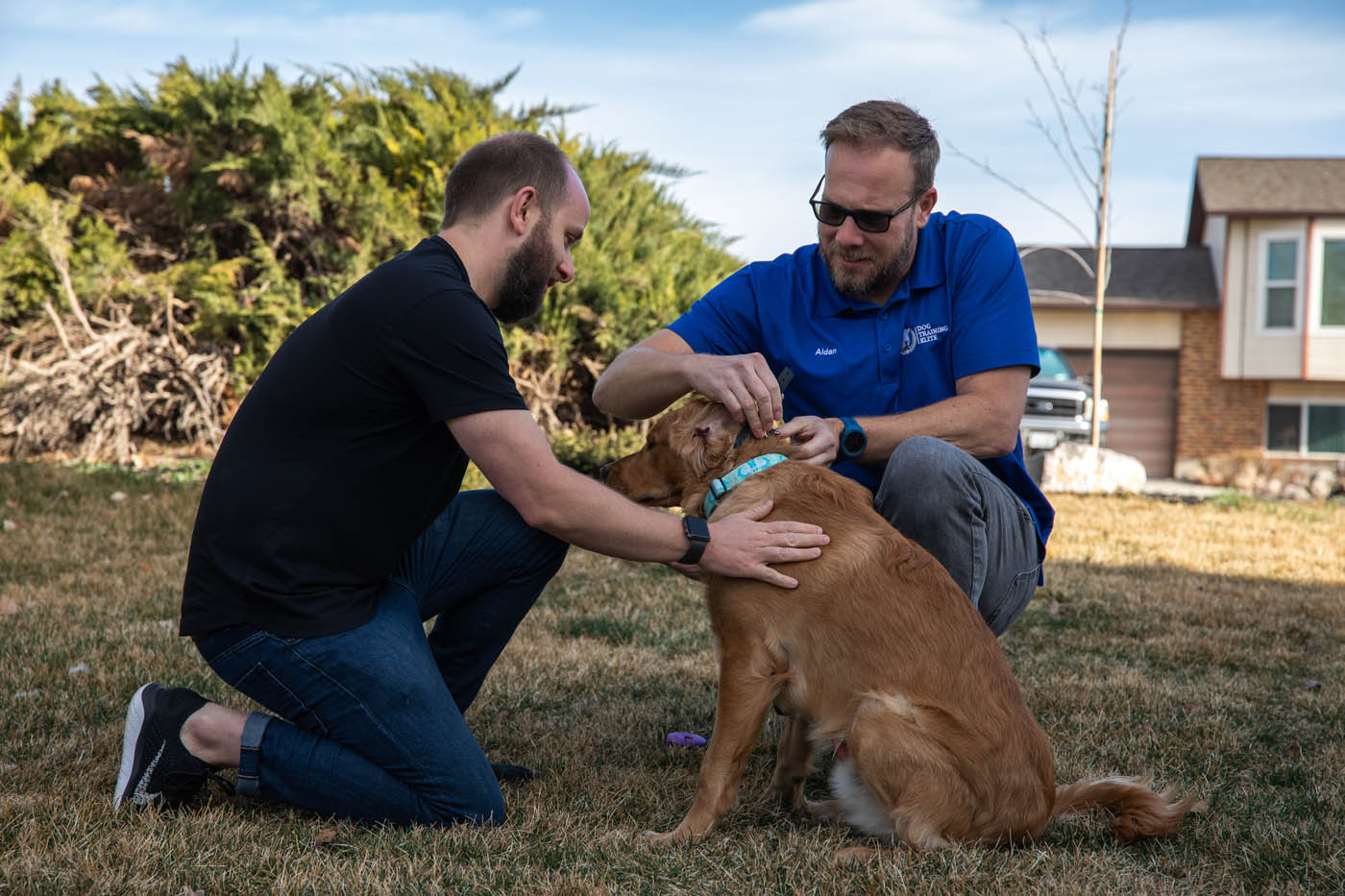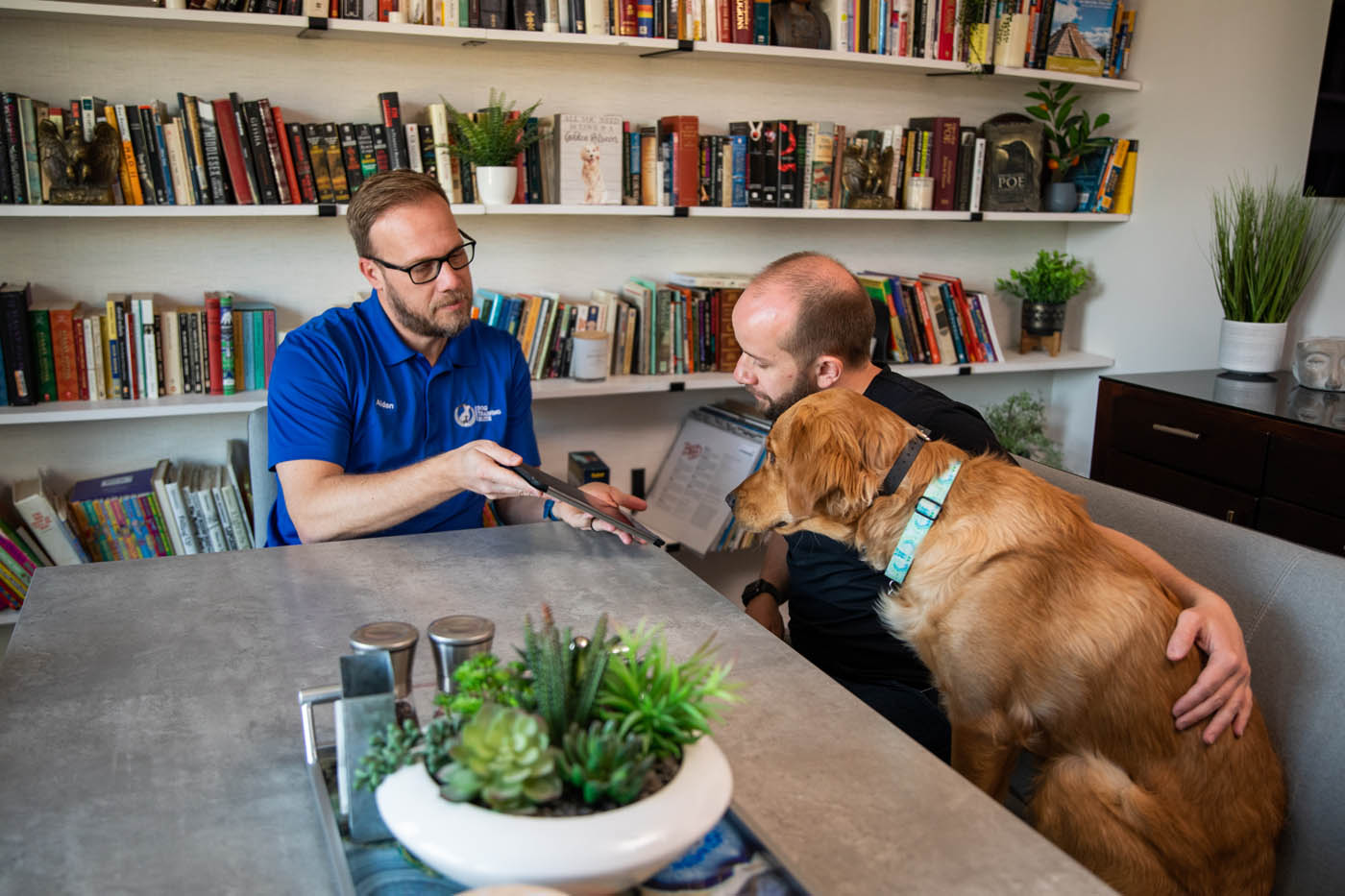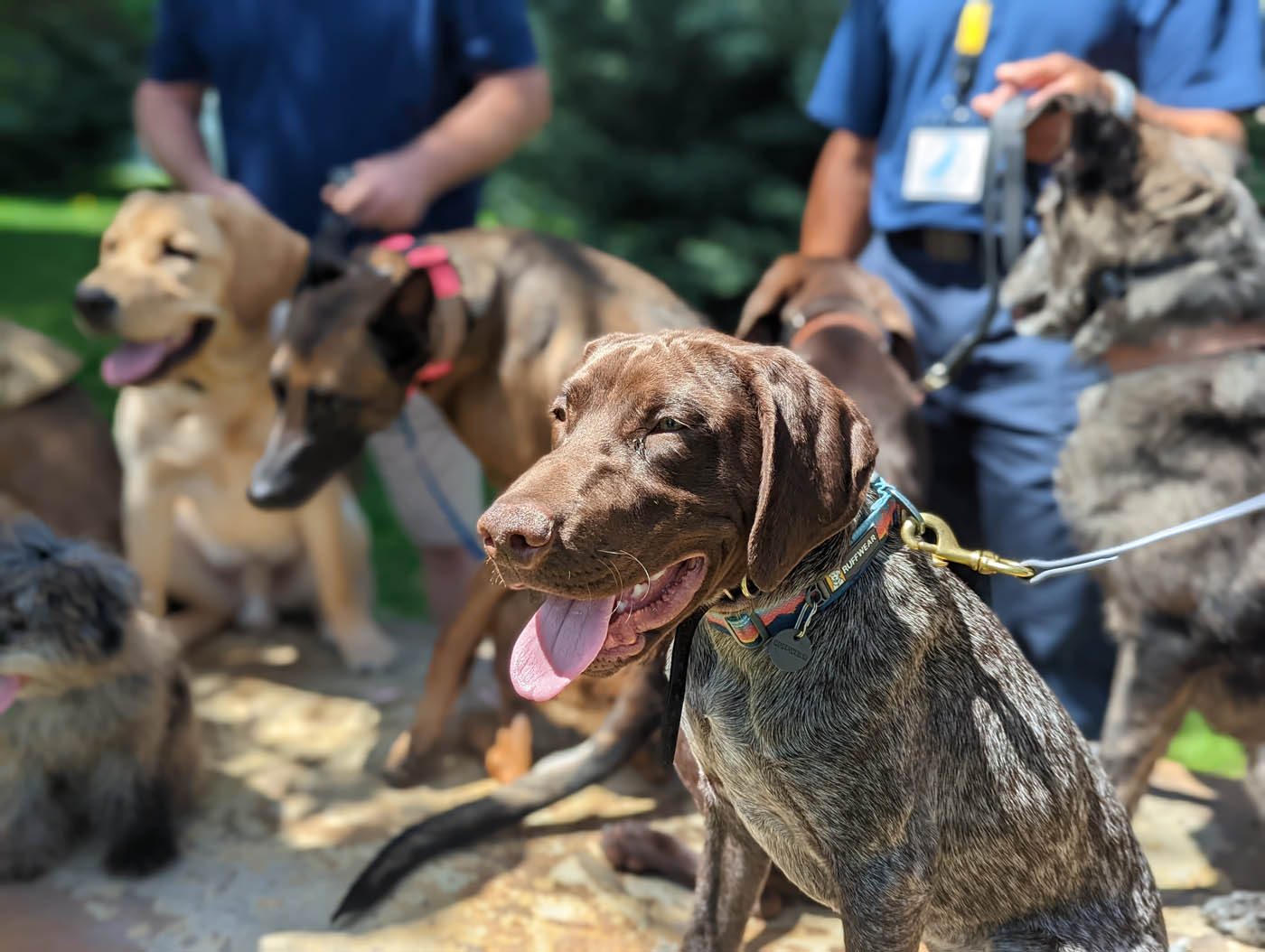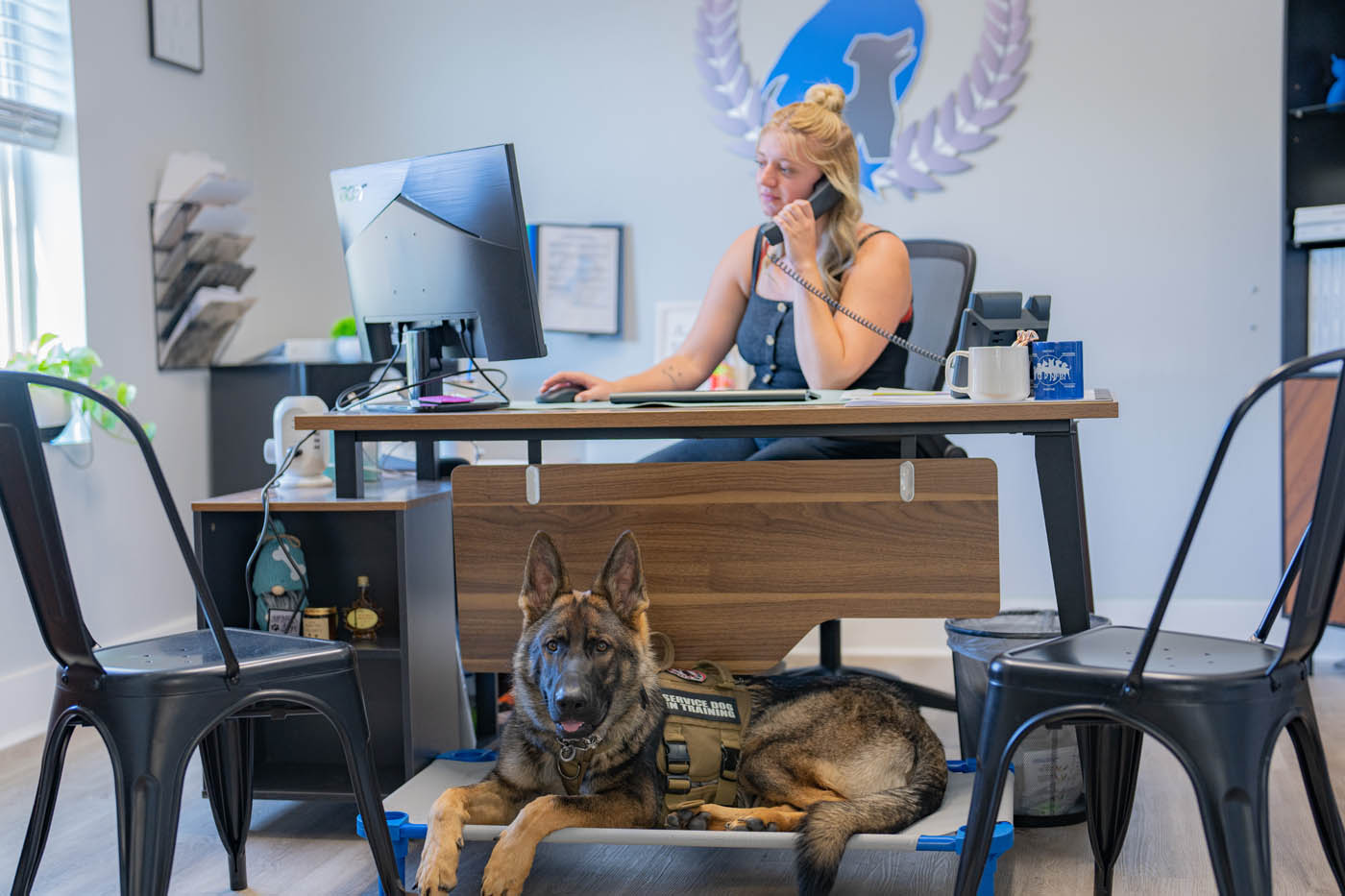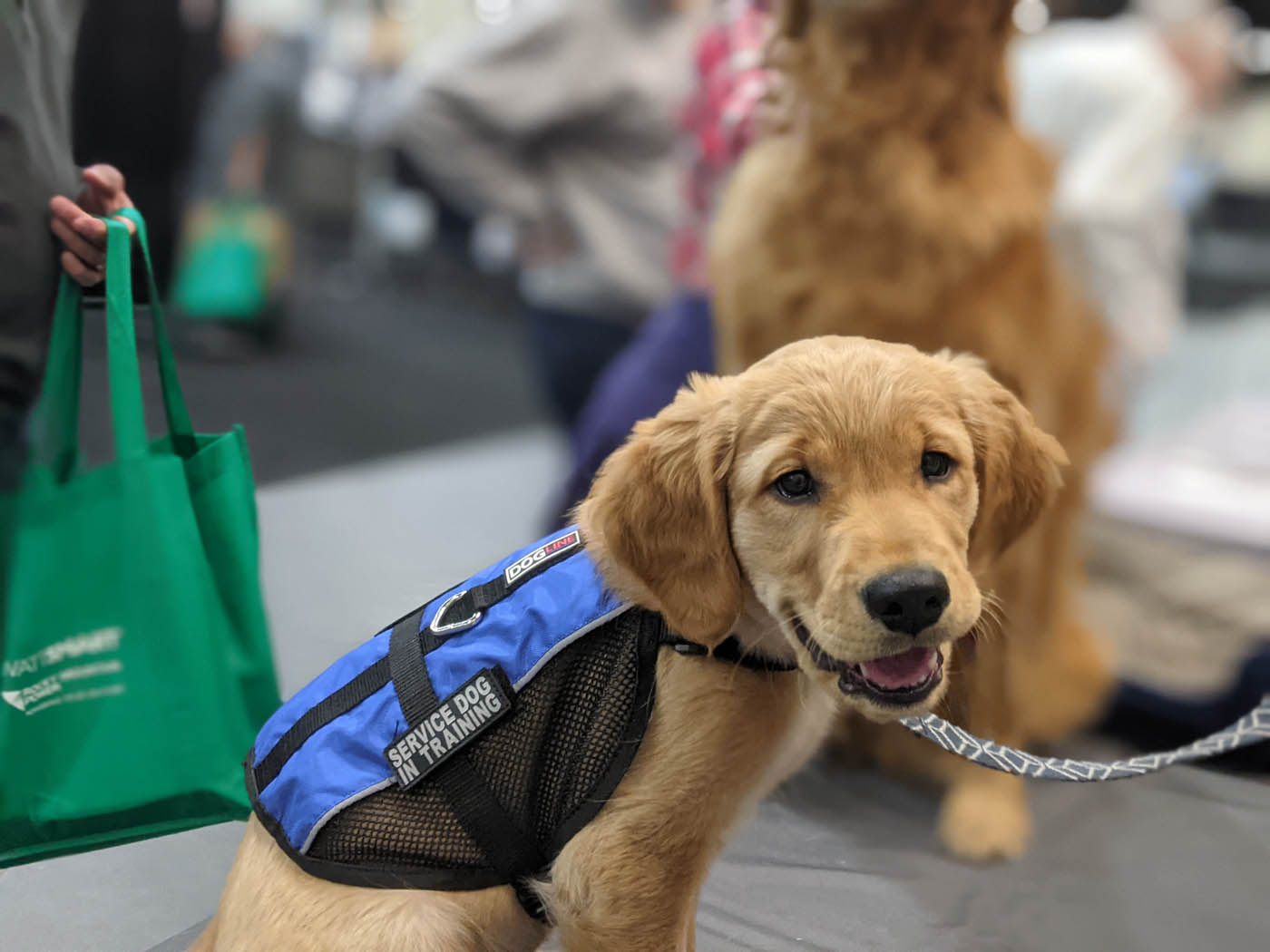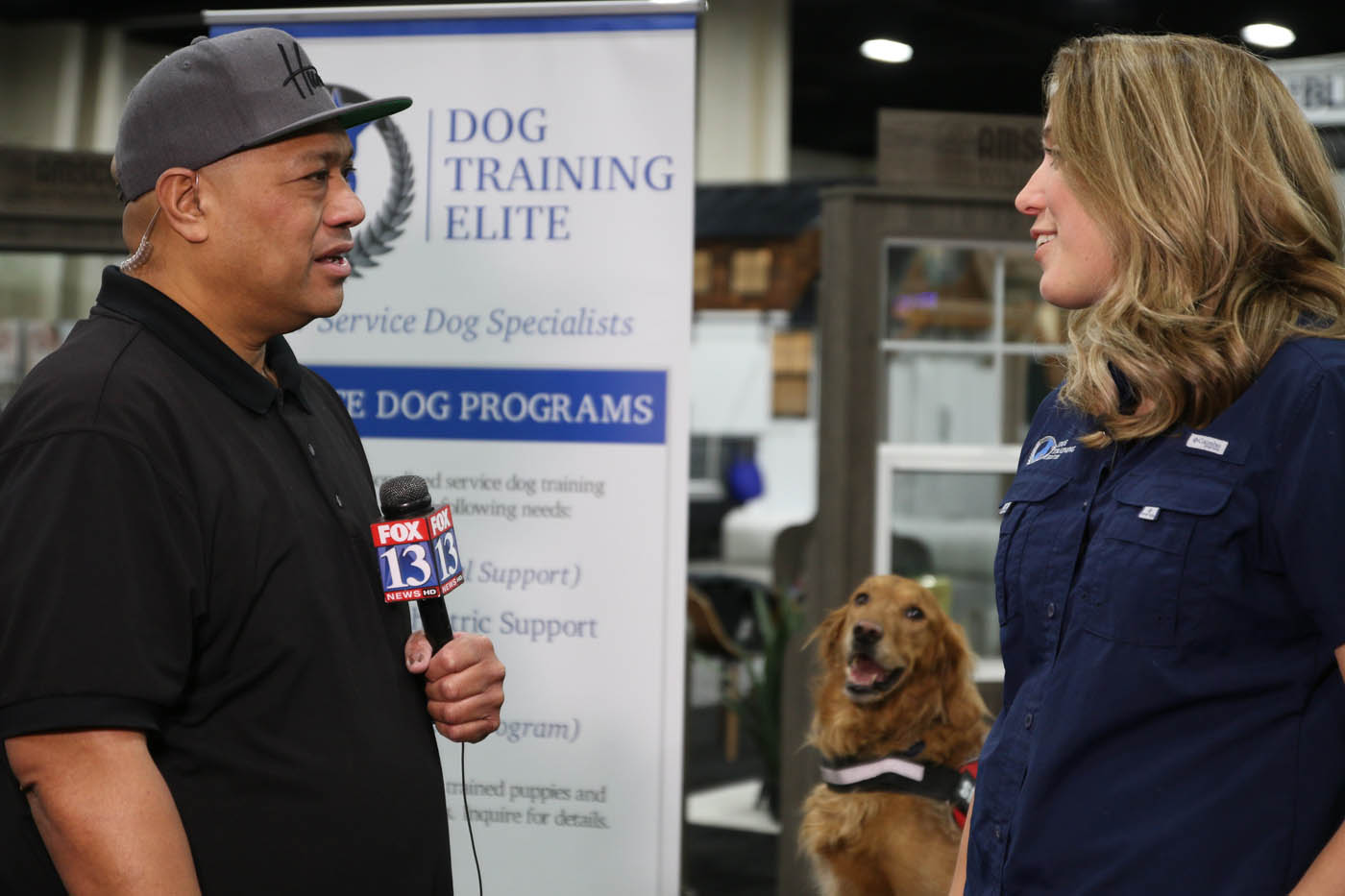Harvard Dog Training
January 10, 2024
Dog Training Elite in Harvard offers a unique in-home training method, emphasizing the bond between owners and their dogs. This approach, centered around positive reinforcement, incorporates the Pavlovian method for in-depth obedience training. Renowned for their commitment to long-term canine success, they provide value-rich, budget-friendly training solutions. Designed to fit into a busy lifestyle with just 15 minutes of daily practice, their program effectively enhances canine obedience in a variety of settings. Tailoring their training to the specific needs of each dog and owner, Dog Training Elite ensures a profound and lasting impact on canine behavior.
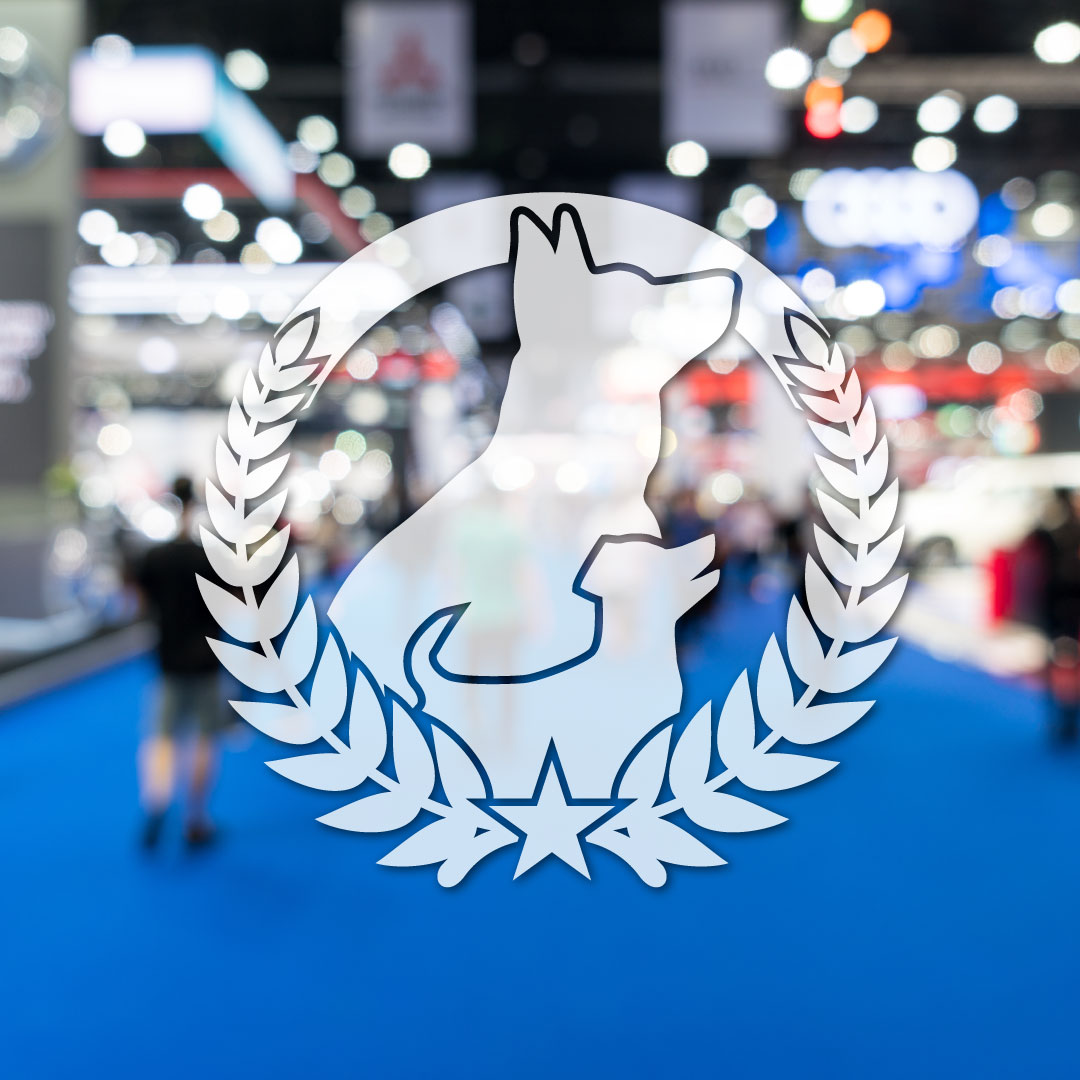

Service Dog Training in Harvard
The service dog training in Harvard from Dog Training Elite is tailored to enhance the independence of individuals with disabilities. These specially trained dogs perform a range of tasks, from guiding those with visual impairments to aiding in medical emergencies. With a focus on personalized in-home training and extensive socialization, each service dog is perfectly matched to their handler's needs. The training covers public behavior and task-specific skills, with special attention to supporting individuals with PTSD, greatly enhancing their autonomy and quality of life.
Obedience Training for Dogs in Harvard
Dog Training Elite in Harvard stands out for its obedience training program, offering personalized in-home sessions and advanced group classes. The training focuses on mastering key commands such as 'heel,’ ‘sit,’ and ‘come,’ combining classical conditioning with gentle electric collar techniques. This approach promotes effective learning without discomfort, fostering an encouraging training environment. The positive reinforcement strategy nurtures the dog's natural inclination to please, laying a solid foundation for respectful and obedient behavior throughout their life.
Puppy Training in Harvard
DTE offers a comprehensive puppy training program in Harvard, starting as early as eight weeks. The training focuses on in-home obedience and crucial early socialization, addressing common issues like potty training and leash behavior. As the puppy grows, the program adapts, ensuring a well-rounded upbringing. The emphasis on early socialization and owner involvement paves the way for a well-behaved adult dog. This approach ensures a rewarding and enriching training experience for both the puppies and their owners.
Dog Anxiety/Aggression Training in Harvard
Addressing canine anxiety and aggression is a specialty of Dog Training Elite in Harvard. The training begins at home, establishing a baseline of obedience, and then progressively tackles more challenging situations. For dogs displaying dominant aggression, there are specific home-based programs to establish owner leadership. This comprehensive approach not only deals with the symptoms but also the root causes of anxiety and aggression, promoting a tranquil and balanced relationship between dogs and their human families.
Therapy Dog Training in Harvard
The therapy dog training program at Harvard's Dog Training Elite focuses on nurturing dogs to provide comfort and happiness in various settings. These dogs are trained to maintain concentration amidst distractions, interact amiably with strangers, and understand personal boundaries. Their presence in medical and care facilities significantly uplifts mood and reduces pain, offering a welcome distraction and unconditional love. Training these dogs is essential in environments like mental health facilities and for children with autism, where they enhance social interaction and emotional support.
Emotional Support Dog Harvard
DTE specializes in training emotional support dogs in Harvard, which is vital for individuals facing mental health challenges. These dogs are adept at sensing and responding to their handlers' emotional shifts, providing essential companionship and relief. While distinct from service dogs, an emotional support dog’s role in enhancing their handlers' emotional well-being is critical, helping to ease feelings of isolation, anxiety, and stress, thus becoming an essential part of their handler's support network.
E-collar Dog Training in Harvard
Dog Training Elite in Harvard uniquely combines classical conditioning with the humane application of electric collars. This collar, designed to be a gentle alert rather than punitive that many believe it to be, complements the positive reinforcement training method. This technique creates a supportive learning environment, resulting in well-trained, responsive dogs who act out of respect and affection. This progressive approach to training ensures an effective and positive experience for both dogs and their owners.
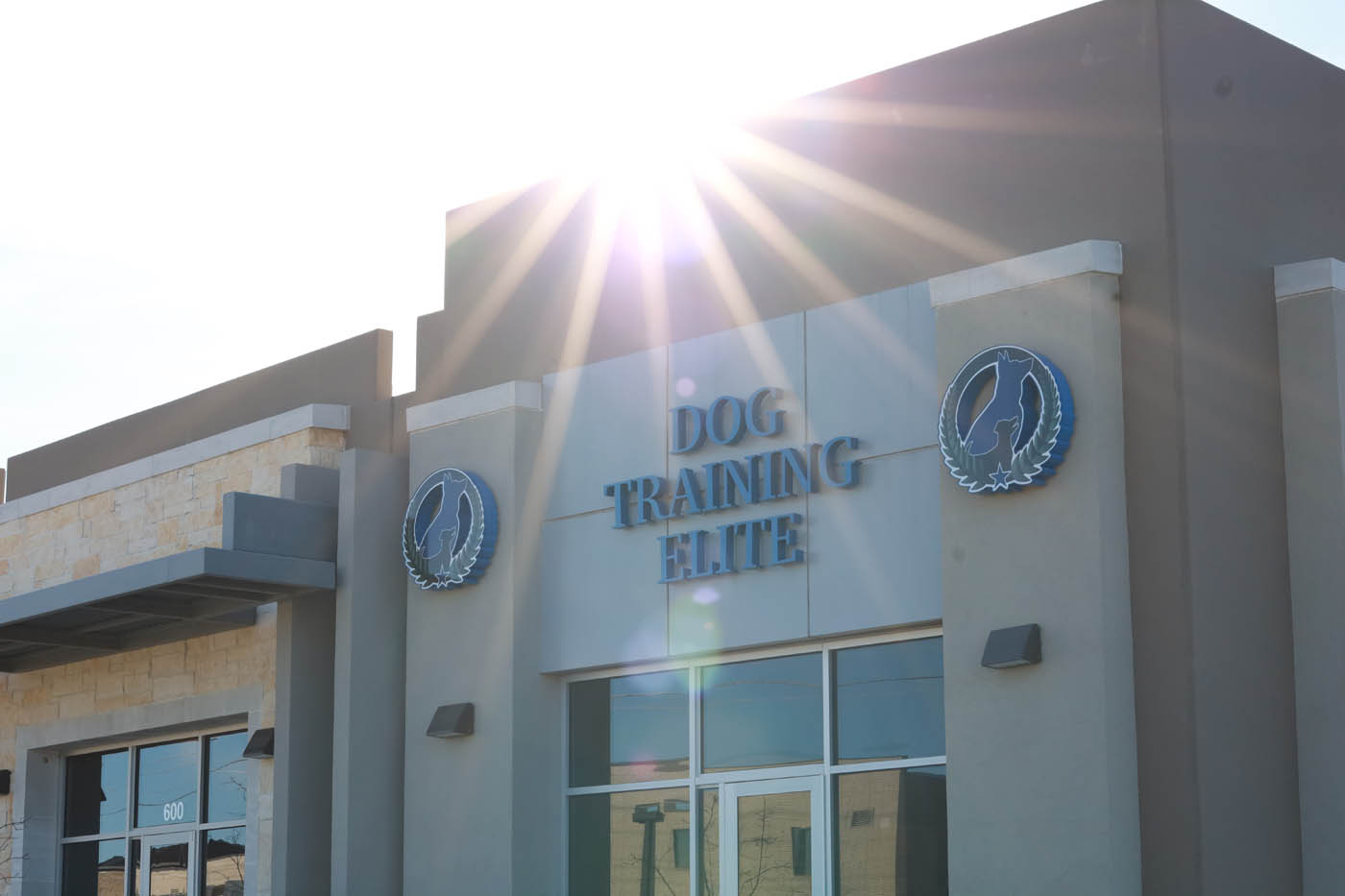
Dog Training Elite Fitchburg
Get Your Free Assessment
You and your canine companion really can have it all. See how easy it can be to become a member of the elite pup society by requesting a free consultation today!
